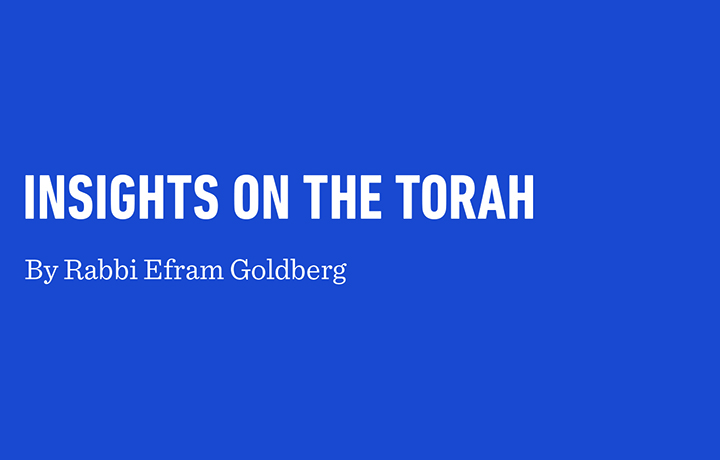Just a Little Bit Longer: Waiting For Geulah
By Gila Arnold
Meira wasn’t particularly anxious when she didn’t become pregnant right away. She was a young newlywed, she was working in a job she enjoyed, and if she had extra time to spend with her new husband and advance in her career, so much the better.
But then that newlywed period stretched into one year, two, three—and somewhere along the way, Meira stopped feeling so chill about her childless state. What made it particularly frustrating was that, after undergoing a battery of tests, there seemed to be no discernable medical reason for her infertility. Had she only been told, “This is your problem, and here’s what we recommend you do about it,” it would have been easier to deal with. A battle plan, a timetable—go for this procedure, take these hormones, wait a couple of months—this was the clarity she was craving. Not, “I’m not really sure why you haven’t gotten pregnant yet.”
And yet, she hadn’t.
More time went by, and the doctors recommended Meira and her husband try IVF. Maybe, just maybe, this would be the conduit for the yeshuah they were waiting for.
It was a difficult ordeal, both physically and emotionally. The procedure’s sensitive timing meant she had to miss a lot of work—yet she couldn’t tell her boss why. All of the hormones she was taking triggered early-pregnancy-like symptoms —nausea, mood swings—yet she suffered alone, without the sympathetic support of friends and family.
It was a private, intense time for Meira and her husband, as they davened, dreamed, hoped. Until the results came back.
Negative.
n n n
So many of us are waiting in life. For some, it’s the long wait for a baby. For others, it’s waiting for a shidduch or a job, for a child to return to Yiddishkeit or a reconciliation between family members. Whatever the reason, anyone who’s experienced this wait knows its sheer agony. The long, dark, endless tunnel, the constant fear of when—how—will it ever end?
Yet, we do it. Somehow, we put one foot in front of another, holding fast to our hope as we propel ourselves forward on our journey.
Why? How? Because we are a people who know how to wait. It’s embedded in our deepest core, etched in our collective genes. It’s found in the tears of our grandparents throughout the generations, whispered in our lullabies, screamed in our moments of anguish.
Hold on tight. It’s just around the corner. If not today, maybe tomorrow.
Which brings me to what’s on everyone’s mind right now.
It’s been almost two years of mind-blowing world events. Of geopolitical earthquakes, of social orders erupting, of stunning victories and horrendous hate.
Of miracles. And more miracles. And, again, more. Of Hashem’s love shining on His people and on His land, in a way we haven’t felt in decades—centuries—millennia.
Suddenly, history as we know it seems to be hurtling forward at the speed of a ballistic missile, racing towards a finish line that seems so close, we can practically reach out and touch it.
There are still so many tragedies. So much pain. There are still precious soldiers being killed, precious neshamos being held in the dark Gazan tunnels. There is still hatred and fighting between brothers. We still have so many problems that seem insurmountable.
Yet we’ve learned this year that seemingly insurmountable problems can explode into rubble in one miraculous instant.
n n n
Meira and her husband endured nine long years of waiting. During that time, they went through three rounds of IVF—supported by the emotional, halachic, and medical guidance of PUAH. Yet each time, the results were negative. No pregnancy. No baby. No, no, no.
It was so hard to hold on to hope.
But Meira realized there was no option but to move forward. She would endure the discomforts of the IVF procedure one more time. Bracing herself, she began the process.
Are you guessing what comes next? That this ‘one last time’, the IVF procedure that Meira stretched herself to undergo, was the one that succeeded at last?
Well, no.
What happened was that, suddenly, she became pregnant. Naturally. After nine long years. While taking hormones that were designed to prevent pregnancy.
Why, with ‘no medical explanation’, did she have to endure the long, painful wait to have children? Only Hashem knows.
But what Meira and her husband learned is that, when He decides it’s time, the yeshuah can come in one miraculous instant.
n n n
The Three Weeks are upon us. Tishah B’Av is approaching once again. But this year, the familiar annual sigh of, “Hashem, how much longer?” seems, just maybe, to have an answer.
Can’t you hear it, the Heavenly whisper in the wind? Hold on tight, My children. Just a little bit longer.
It’s been such a long wait.
But, like Meira and her husband, and the thousands of couples who’ve been zocheh to experience their personal yeshuah—thanks to the care and generosity of those who support PUAH’s work—we know that when it’s time, the geulah can come in the blink of an eye. That when, on Tishah B’Av, we exhort Yerushalayim to cry like a woman in labor, it’s because we know the secret. All it takes is one mighty, miraculous moment—and a whole new world will suddenly be born.
Achakeh lo b’chol yom she’yavo.













